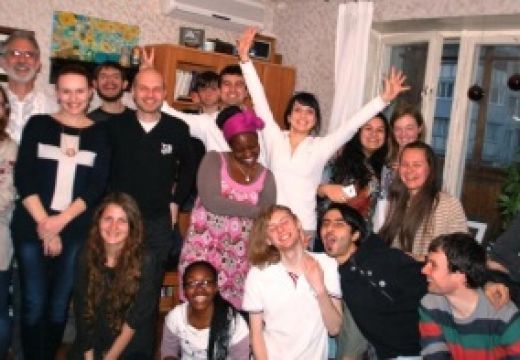
Picture of a church plant
What does it look like to plant a church? How would you start? What would you do?
In Odessa, Ukraine, SEND missionaries Alfie and Julie Mosse and their Ukrainian ministry partner, Andrei, are in the middle of a church-planting effort. Andrei offers us this picture of what it looks like in their context.
In the fall of 2013, I and some of my friends started an English club in one of the biggest universities in Odessa. The English club helped us to attract some Ukrainian and foreign students. After a while we started to invite English club visitors to have dinner and conversation together on Sunday nights. This turned into our International Student Dinners.
Now we have English club every Thursday and International Student Dinner on Sundays at my apartment. Through the English club and dinners, we developed relationships and last September we started a Bible study home group.
Over the last year I have seen God leading us, bringing new people and working in students’ hearts. We hope He will continue to do His work in planting His church here in my neighborhood. With this hope in our hearts, and since we have some people regularly attending our Bible study, after the first of the year we are planning to start worship service in my apartment.
Andrei has also started a partnership with a member of the local First Baptist Church to rent a small meeting place to host English Clubs, Bible studies and other events.
Andrei says the Victory Park Church team is excitedly watching God build His kingdom there in Odessa.
The church does anticipate some financial needs. If you are interested in helping this church grow, send a donation to SEND International, with the memo “Odessa Victory Park Church Plant.”
Additional Posts




